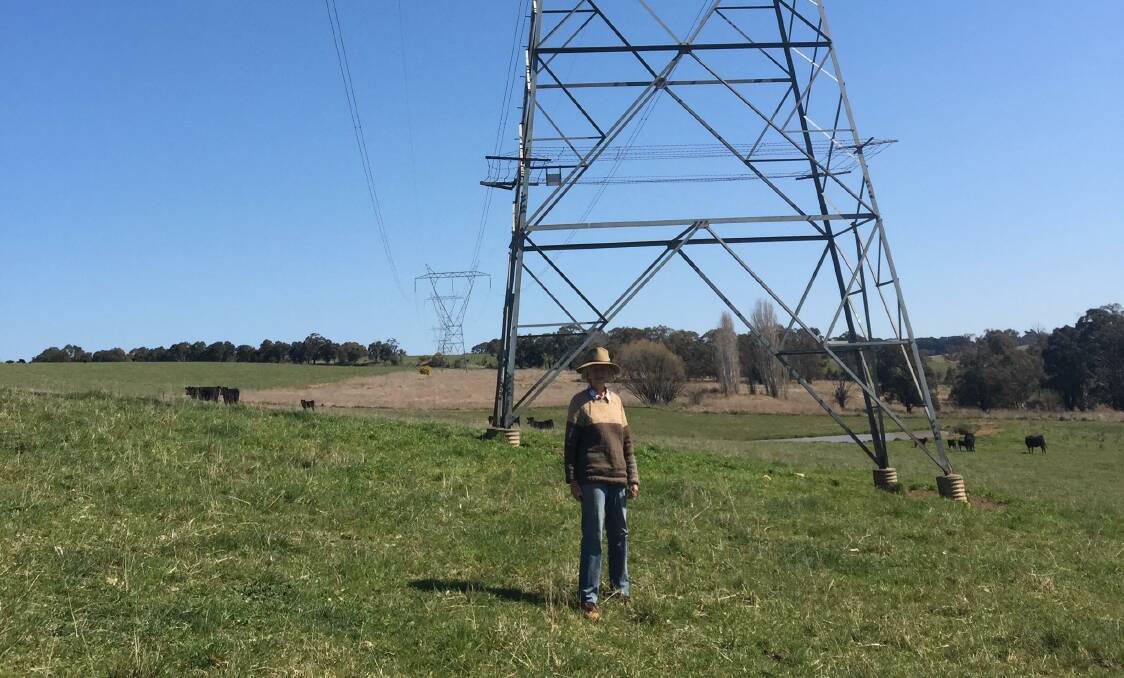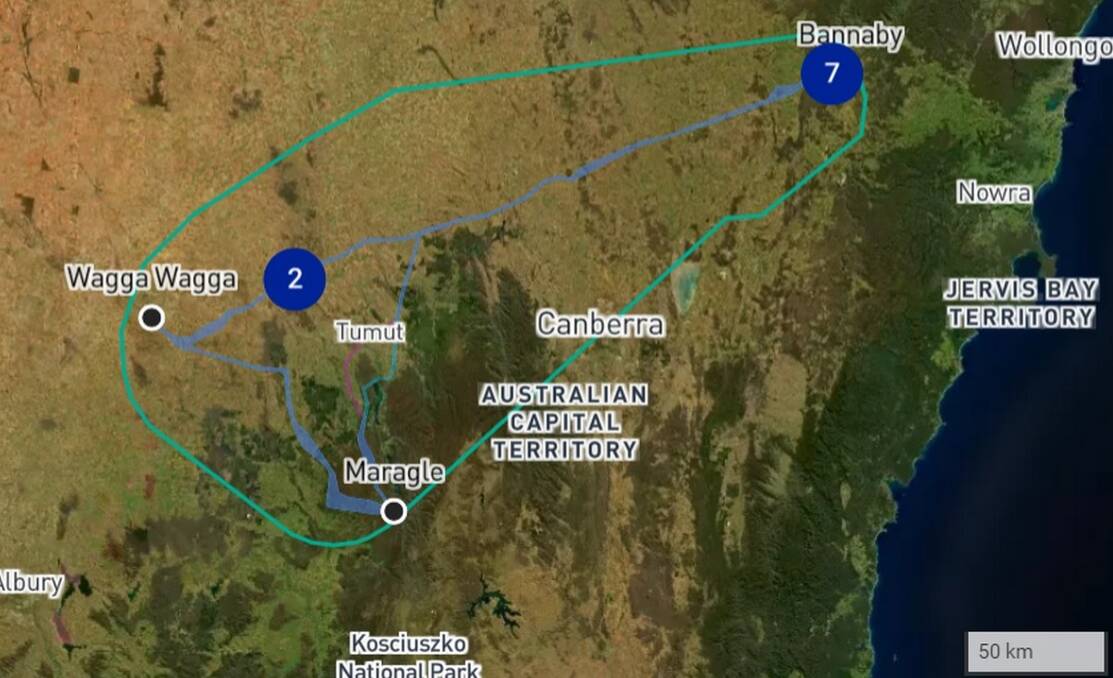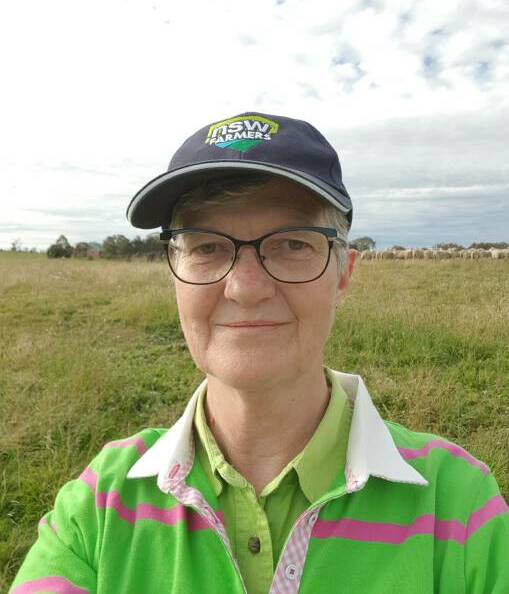
Residents opposed to a major transmission line proposal crossing the Crookwell and Taralga districts have enlisted NSW Farmers' Association support in their battle.
Subscribe now for unlimited access.
or signup to continue reading
Members of action group, Resist HumeLink, are pushing to have parts of Transgrid's 630km Maragle to Bannaby transmission line placed underground.
The $2.1 billion 500 kilovolt line proposal is designed to bring new energy sources like renewables online, "unlock the Snowy Hydro Scheme's full potential" and increase the amount of energy that can be delivered across NSW and the ACT.
READ MORE:
The plan has met stiff resistance in Upper Lachlan Shire where numerous landowners said they would be affected by its route. Its 75-metre height, potential property value, farming and biosecurity impacts are among their issues of concern.
On August 26 several Resist HumeLink members met with NSW Farmers representatives on a Zoom hook-up.
"It was clear that NSW FA is concerned on behalf of the many landholders whose properties and livelihoods are facing extreme disruption, if not outright destruction," action group member Russell Erwin said.
"Participants welcomed (NSW Farmers environment director) Nick Savage who tellingly said that while the cost of this project is a 'one-off' for TransGrid, the cost for those affected will continue in perpetuity."
Co-member and fellow Bannister property owner, Christine Hughes said the group wanted to raise $55,000 for a company to undertake a feasibility study on the underground line option.
"If it is put underground there will be no electro-magnetic field, which can cause cancer, and fewer complaints," told The Post.
"We need to create a precedent to encourage companies to go underground and do the environmentally sound option."

Transgrid has informed landowners that this course was cost prohibitive and would require an eight-metre depth.
Mrs Hughes rejects this and says, based on consultant advice, only a one-metre depth is necessary.
She cited worldwide innovation in placing such infrastructure underground and said Transgrid was feeding the public "old technology."
But a Transgrid spokeswoman said undergrounding HumeLink was not practical for several reasons, including environmental impact, technical limitations and cost.
"Underground transmission lines can cost as much as 10 times more than overhead lines," she said.
"They are built using an open-trenching technique, whereby earth is excavated from the trench and replaced with a thermal-resistant cement. The composition of this cement sterilises the ground, meaning it cannot be cropped over. In comparison, cropping and grazing can continue to occur under overhead lines, causing less impact on many farming operations."
The spokeswoman that as there was no proven track record of running 500kV cables underground, trialling them on critical lines such as HumeLink would "pose an unwarranted network security risk."
The cables were also at high risk of deterioration over time due to moisture seepage. This damage reduced the network's reliability and increased ongoing maintenance costs.
Pressing the case
Undeterred and taking the queue of a Victorian community, Resist HumeLink wants to raise funds for a feasibility study. It is asking NSW Farmers and Upper Lachlan Shire Council to help spread the word.
Members have also written to Hume MP Angus Taylor, Goulburn MP Wendy Tuckerman and NSW Environment Minister Matt Kean asking that Transgrid be required to explore the underground alternative.
Mrs Hughes and husband, Tom, a former QC and federal attorney general, have lived at Bannister Station for almost 30 years. The property, 18km from Crookwell, runs sheep and cattle and already has three transmission lines and eight towers.
"It is a pristine area and people move here for the lifestyle. They don't want to be in danger of getting cancer... and certainly not these big things (transmission lines) on their property," she said.
Landowners were also worried about an eventual 200-metre easement and potential impacts on rural productivity. Transgrid has identified a preliminary 1km-wide easement.
Mrs Hughes said people all along the route were "worried, distressed and confused" about the proposal. The action group talked regularly to similar organisations that had formed.
'Archaic' compensation laws
NSW Farmers Upper Lachlan branch chair, Dr Robyn Alders, said it was no longer acceptable for companies and government to only explore one option.

"In my opinion an underground line should be taken seriously," she said.
"...How could you make a major commitment of taxpayer funds without (exploring) it?"
Moreover, the risk of bushfire in the event of poorly maintained lines had not been addressed.
Dr Alders said no one denied the need for energy but Transgrid's "lack of meaningful consultation" had been a problem. People were yet to be informed of the exact route.
Mr Savage agreed.
"NSW Farmers supports renewable energy but with Transgrid, there are a lot of issues on how they've selected the corridor," he said.
"We don't think they've adequately canvassed all the options, including going underground."
Mr Savage said the company had not "covered itself in glory" with its consultation and now recognised it had a "trust deficit." This was recently borne out in Rod Stowe's independent review of landowner engagement. Transgrid has promised to implement all 20 recommendations for improvement.
In addition, Transgrid needed to understand the rural impact given the decreasing amount of agricultural land in NSW, he said.

Mr Savage described as "archaic" the Just Terms legislation governing landowner compensation for major infrastructure. He argued it did not recognise lasting impacts and left people out of pocket, unlike annual wind farm payments to farmers.
"Governments are coming around to the view that it is not adequate for the amount of disruption and there are moves to look at the Act," he said.
But at this stage, NSW Farmers won't be engaging in a fundraising drive for the action group. Instead, Mr Savage said it would continue meetings with Transgrid and drive home its obligations around route consultation. These had been more constructive in recent time.
"They need to engage, explain and consult better than what they have been doing," he said.
Mr Erwin said funding the study was beyond the resources of the average "ratbag activist group" but members appreciated NSW Farmers support.
"This project will affect the quality of life throughout whole districts, more than just those properties which the line is projected to cross," he said.
"(NSW Farmers) is aware that those affected are being asked to bear the burden of disruption, devaluation and destruction on behalf of the wider Australian community."
We care about what you think. Have your say in the form below and if you love local news don't forget to subscribe.


